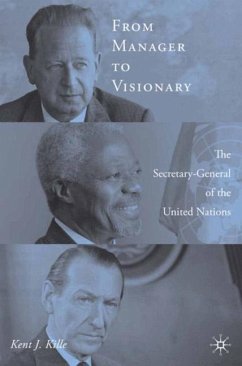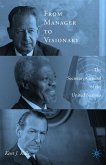This study examines how the UN Secretary-General's leadership qualities affect how they address threats to peace and security. The personal traits of all seven Secretaries-General are measured and categorized into one of three leadership styles: managerial, strategic, and visionary.
"From Manager to Visionary provides a first-rate analysis of leadership at the United Nations. Using a novel assessment approach, Kent Kille conducts a content analysis of all U.N. Secretaries-General, coupled with comprehensive and comparative case studies of Dag Hammarskjold, Kurt Waldheim, and Koffi Annan to make a compelling case for understanding a leader's personal characteristics in shaping how the United Nations promotes peace and security. This book is a must read for all students and scholars of the United Nations." - Ryan C. Hendrickson is Associate Professor of Political Science, Eastern Illinois University, and author of Diplomacy and War at NATO: The Secretary General and Military Action After the Cold War"From Manager to Visionary provides a truly unique and innovative study of how the individual personalities and styles of UN Secretaries General matter in the real world. Kent Kille's rigorous scholarship, linking carefully measured leader characteristics to specific patterns of behavior across a series of past UN leaders, opens wide a window to anyone interested in obtaining a better view of how the UN really functions, and how the individual styles of secretaries general often shape their subsequent decision making and performances in office." - ThomasPreston, Associate Professor of PoliticalScience, Washington State University








